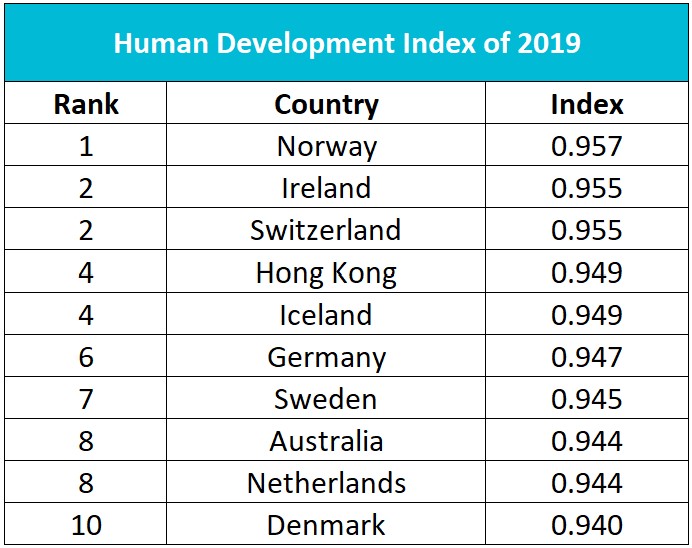The Human Development Index (HDI) was developed by the United Nations to measure the quality of life in different countries.
Economists recognize that quality of life depends on more than average income. A person’s quality of life also depends on health and opportunity. This problem has generated other indexes to calculate standard of living. Each index recognizes that income is just one of the variables that affect the standard of living. The Human Development Index (HDI), published by the United Nations, is an index that measures the standard of living in different countries by combining life expectancy (used to measure the quality of health care), educational attainment (used to measure economic opportunity), and income (used to measure the standard of living).
The table below ranks the top ten countries using the HDI from 2019. Germany is the only country that has one of the largest ten economies. (Read Gross Domestic Product – Measuring an Economy’s Performance for tables ranking GDP and per capita GDP.) The index has been criticized for not including environmental quality, public safety, and inequality issues related to race and gender.
Visit the United Nations Web Site if you would like to see the HDI for another country.

Source: United Nations HDI